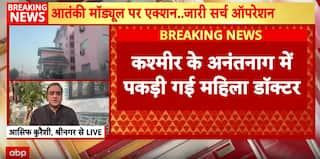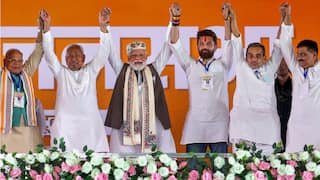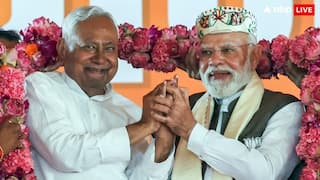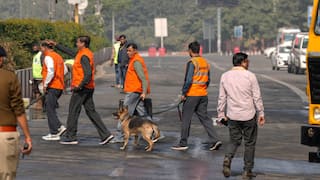'Deeply Biased, We Attach No Value To It': MEA Reacts To US Report On Human Rights Violation In Manipur
Ministry of External Affairs Spokesperson Randhir Jaiswal said the government holds no value to the report.

Days after the US released a report on the status of human rights in India, the Ministry of External Affairs on Thursday said the report is deeply biased and reflects a poor understanding of India.
Ministry of External Affairs Spokesperson Randhir Jaiswal said the government holds no value to the report.
ALSO READ | US State Department Report Highlights Human Rights Violation In Manipur
"This report is deeply biased and reflects a poor understanding of India. We attach no value to it and urge you to do the same," Randhir Jaiswal told reporters during a weekly briefing today.
#WATCH | On the US State Department report on Human Rights, MEA Spokesperson Randhir Jaiswal says, "This report is deeply biased and reflects a poor understanding of India. We attach no value to it and urge you to do the same." pic.twitter.com/4XIHgnoswP
— ANI (@ANI) April 25, 2024
The MEA reaction comes after the US State Department came down heavily on India for human rights vioation in Manipur, harrassment of minorities, restrictions on freedom of expression and media, AFSPA, terrorism, and alleged unlawful killings, among others.
The US report, released by US Secretary of State Anthony Blinken, highlighted that “the outbreak of ethnic conflict between the Kuki and Meitei ethnic groups” resulted in “significant human rights abuses”.
It also stated that “the government took minimal credible steps or action to identify and punish officials who may have committed human rights abuses”.
The report also mentioned the raids by Indian tax authorities on the office of British Broadcasting Corporation (BBC).
The report further said that “there were several reports that the government or its agents committed arbitrary or unlawful killings, including extrajudicial killings.
“The country registered 813 cases of extrajudicial killings between 2016-2022, with the most reported in Chhattisgarh, followed by Uttar Pradesh,” it added.
According to the report, there were a number of press and civil society reports of representatives of political parties using disinformation tactics against civil society organisations, religious minorities, such as Sikhs and Muslims, and the political opposition, sometimes depicting them as security threats.
Top Headlines







































